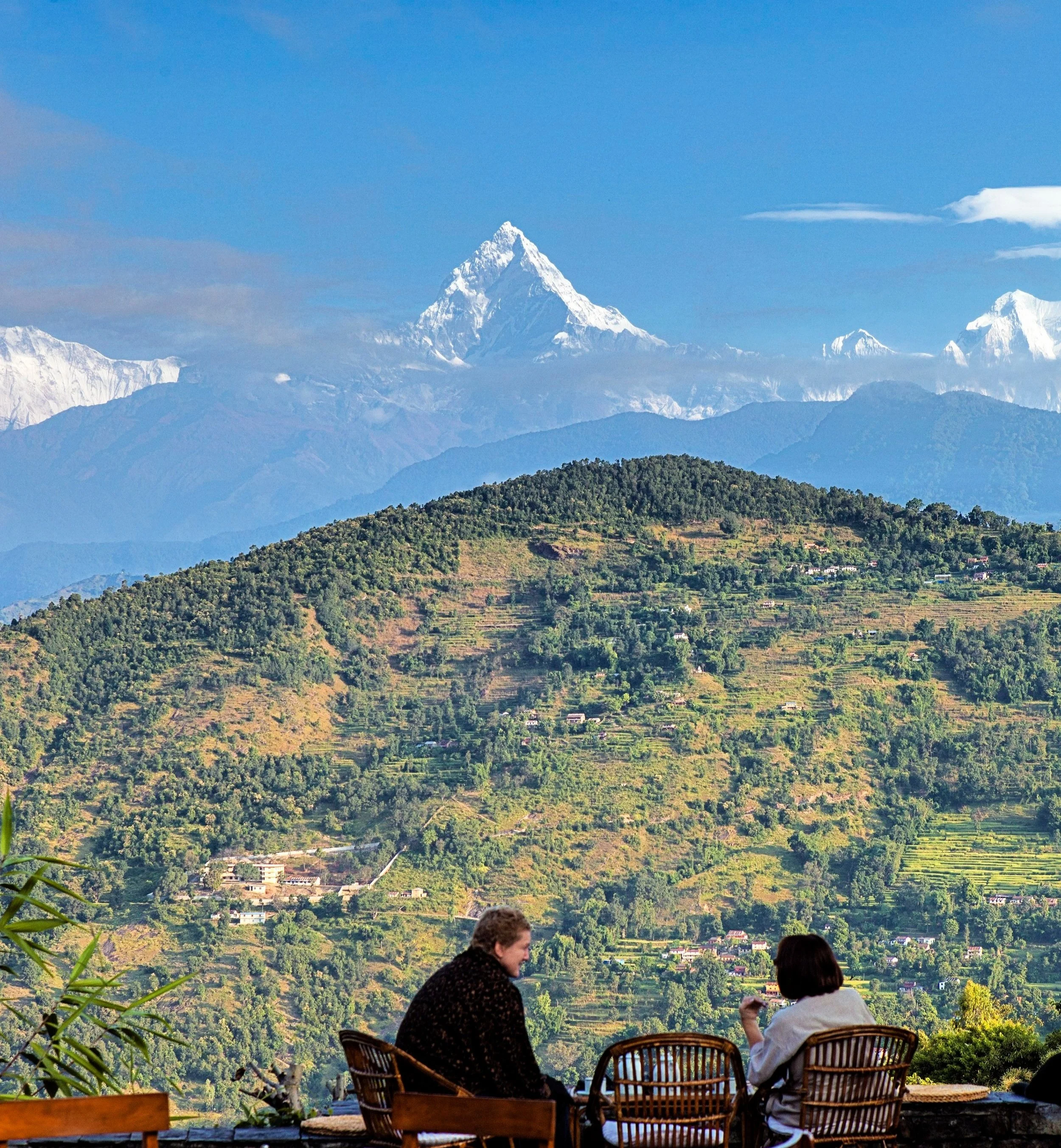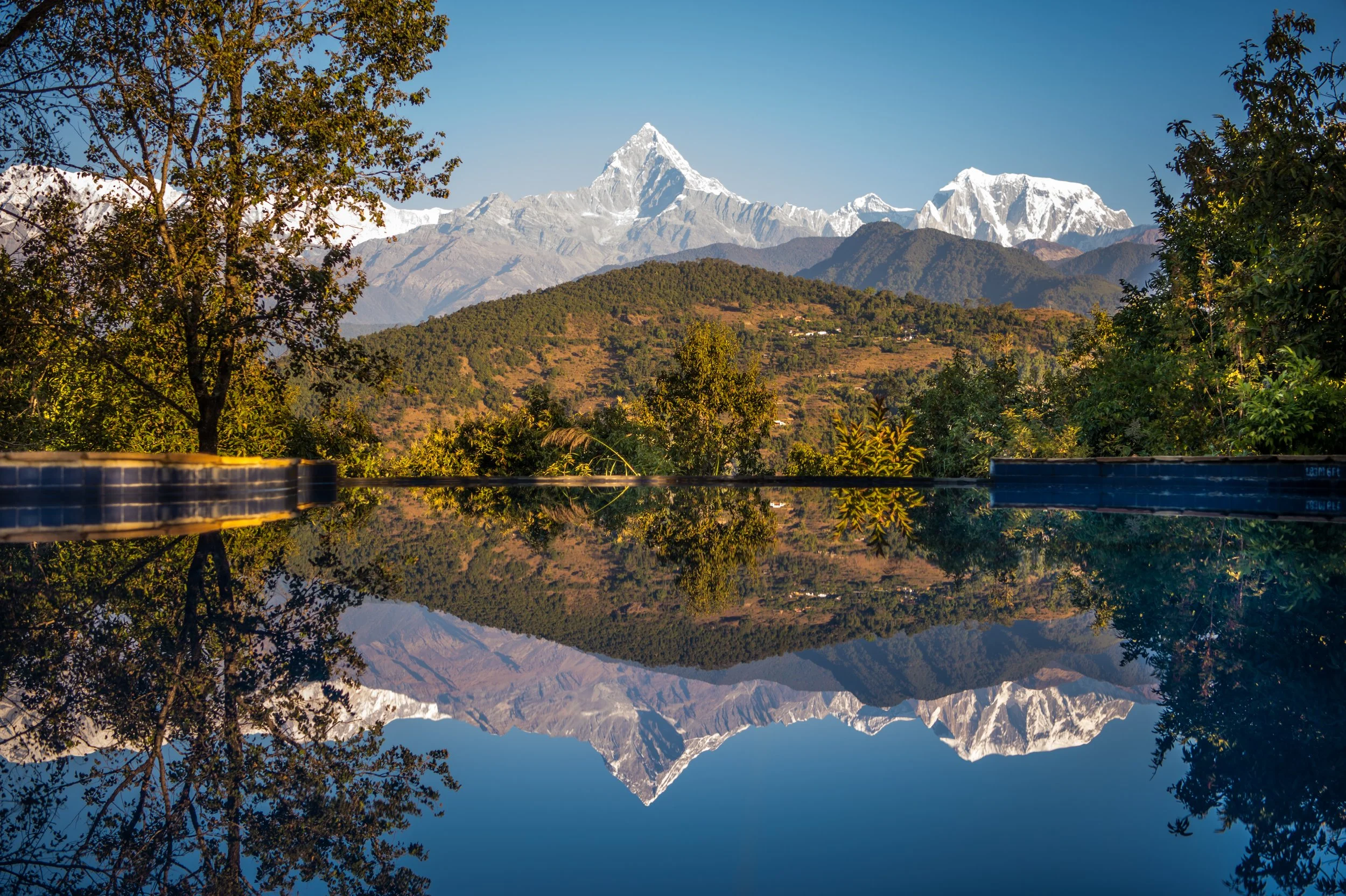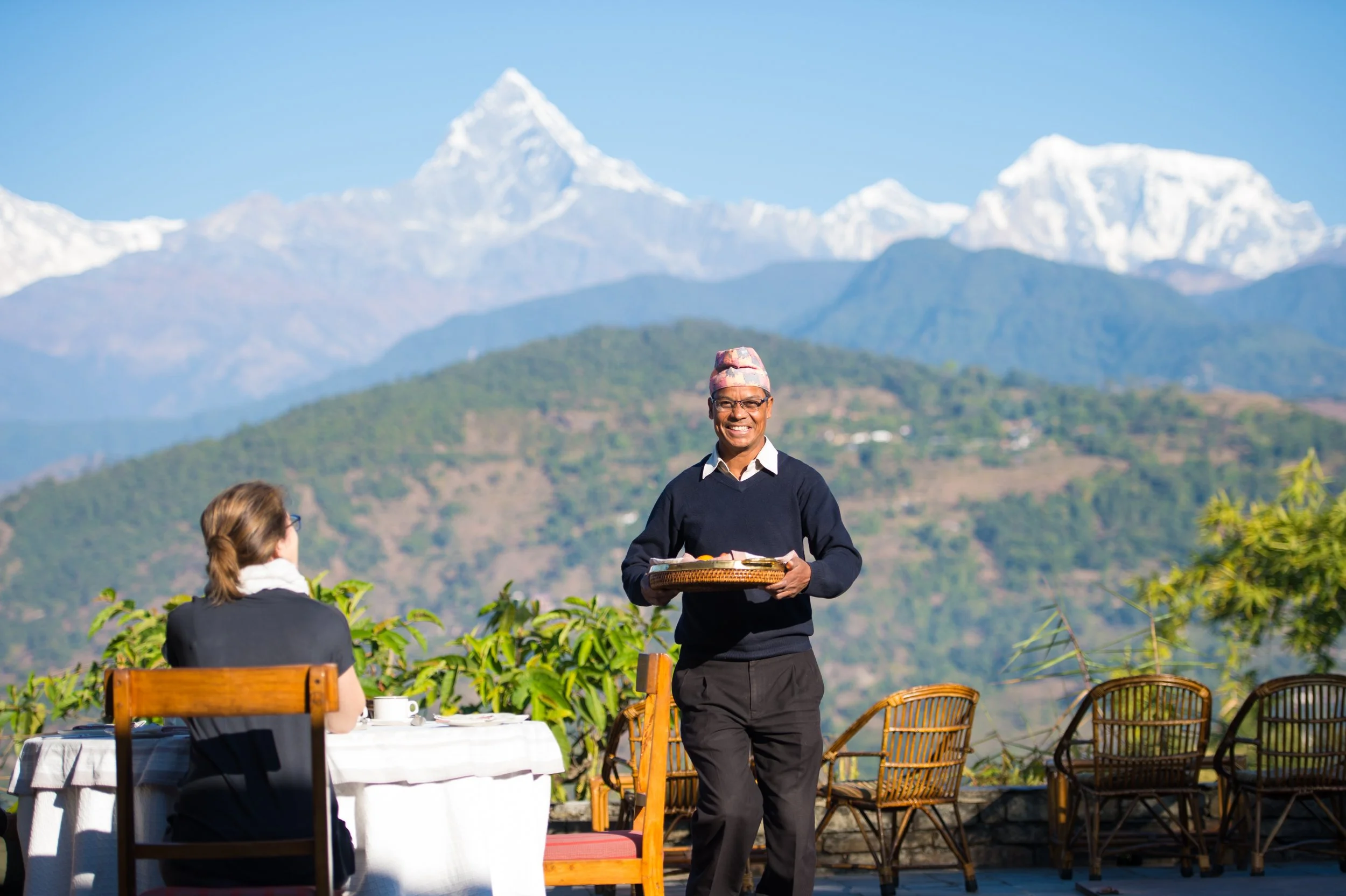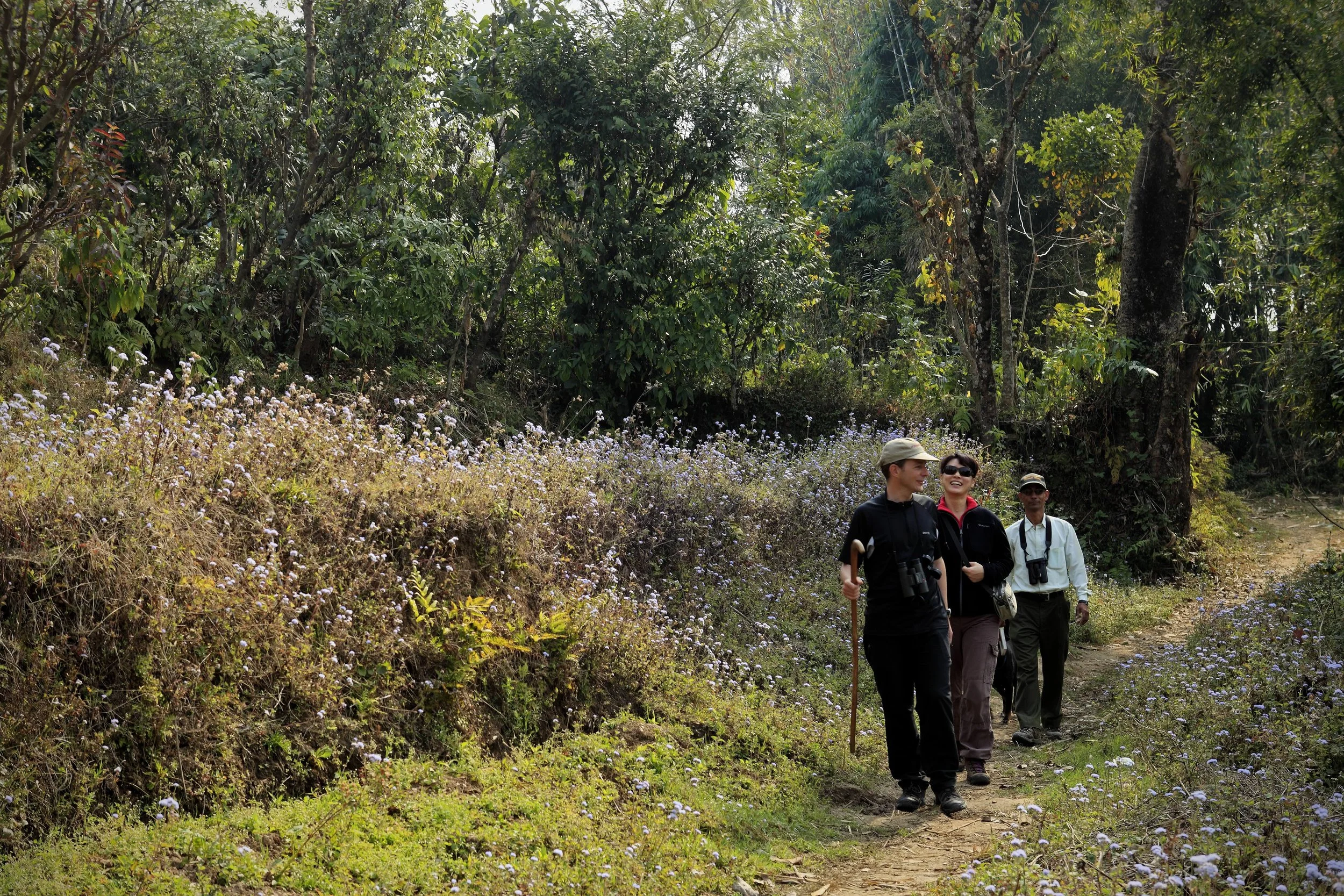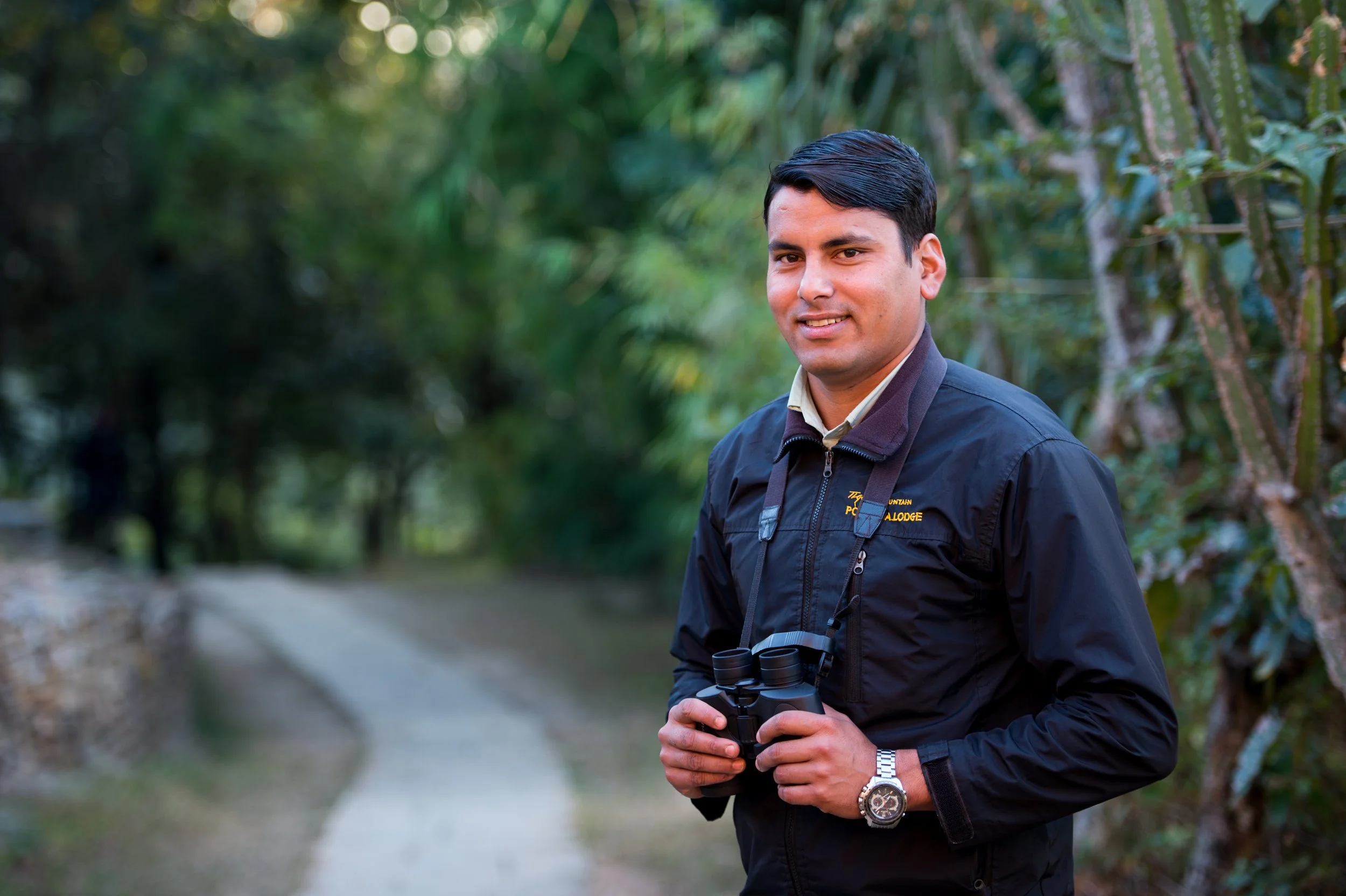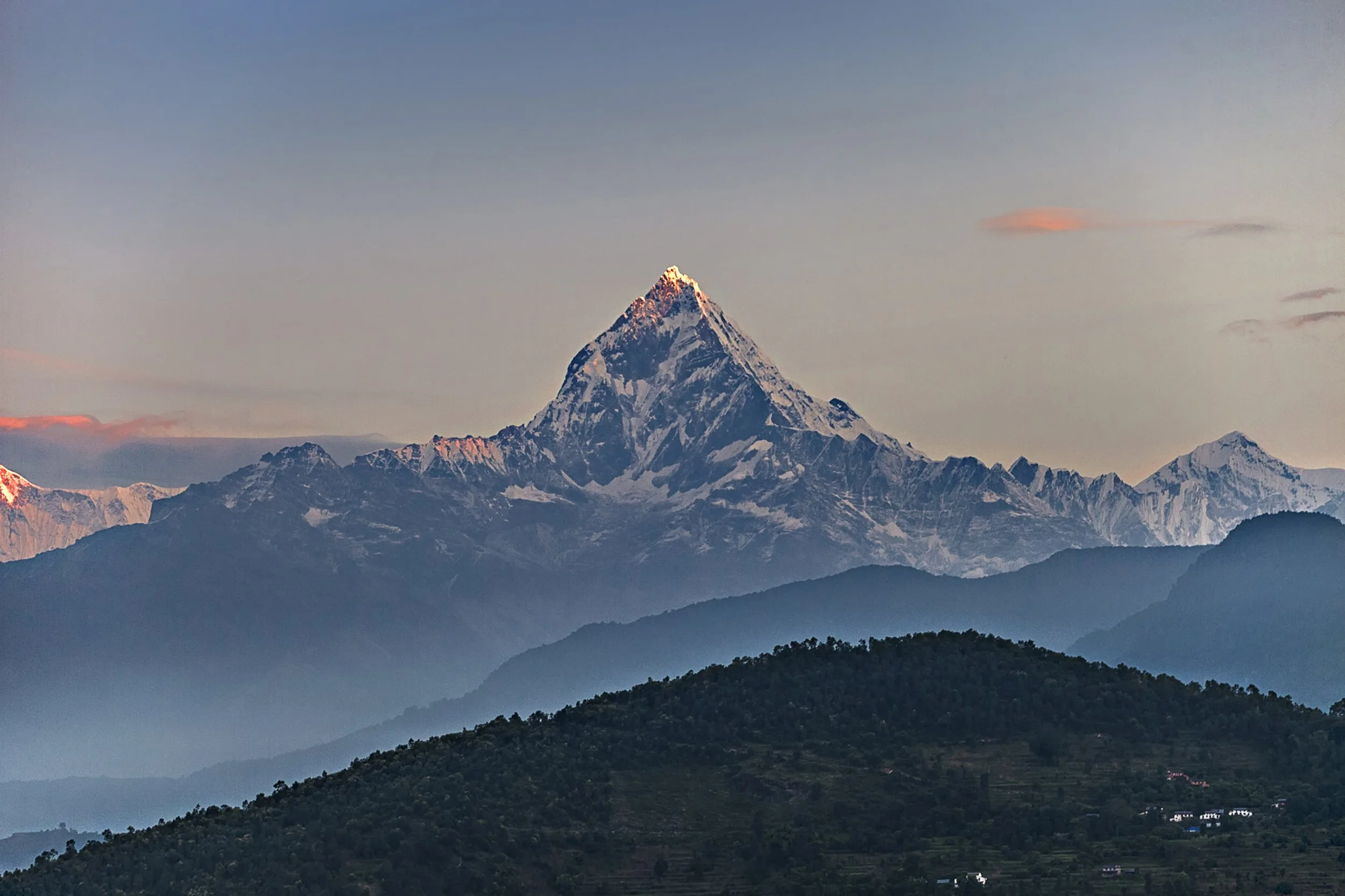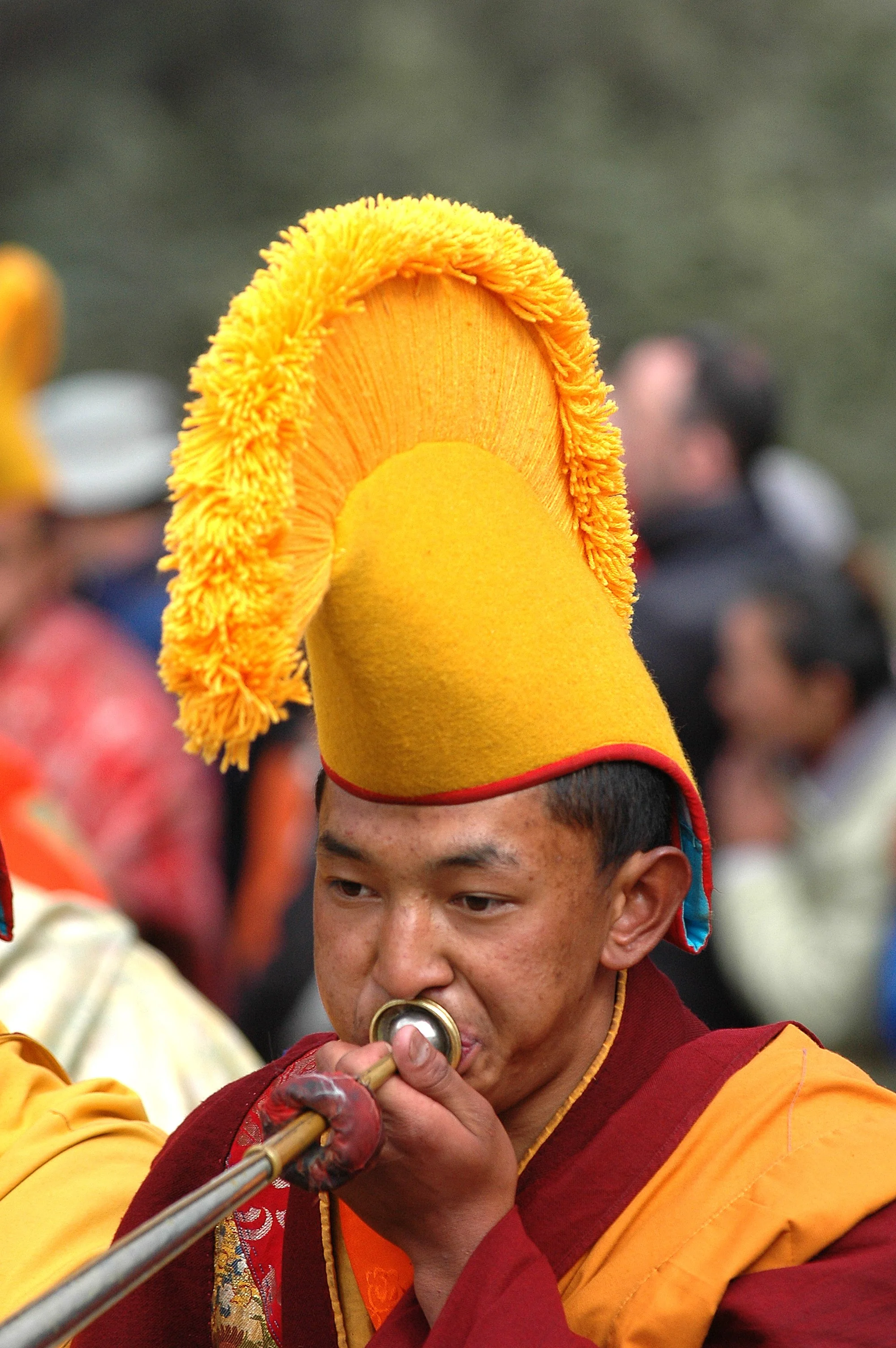Marcus Cotton:
The Sustainability Warrior Who Found His Calling in the Nepali Himalayas
By: Jeremy Tran
In the world of sustainable travel and eco-conscious tourism, there are few stories as inspiring as that of Marcus Cotton. Hailing from a quaint Buckinghamshire farming village in England, Marcus's journey has taken him from the bustling streets of London to the mountainous landscapes of Nepal, where he has become a pioneer in sustainable hospitality.
Today, as the Co-owner and Managing Director of Tiger Mountain Pokhara Lodge, his commitment to sustainable travel is making waves not only in Nepal but across the sub-continent region.
Marcus's journey began with a stint as an insurance broker at the prestigious Lloyds in London. It was a respectable career choice, one that many would aspire to. However, Marcus was driven by a deeper calling—an unrelenting passion for conservation. It was this fervor that eventually led him to Nepal in the 1980s, all thanks to family connections.
He landed a job at the formerly King Mahendra (now National) Trust for Nature Conservation in Nepal during the 1980s. An initially intended six-month mission turned into years of purpose-led entrepreneurial journey, Marcus found himself deeply embedded in the conservation efforts of Nepal.
In 2001, he joined Tiger Mountain Pokhara Lodge, initially as a Director, and over time, ascended to the position of Co-owner and Managing Director.
Under his visionary leadership, this boutique lodge nestled in the picturesque surroundings of the Annapurna mountain range would soon become a symbol of sustainable travel and hospitality in Nepal and beyond. The lodge has become a shining example of an employee-powered and community-oriented hospitality business, reflecting a deep commitment to the environment, with initiatives that include responsible waste management, renewable energy sources, and local sourcing of products.
As the world increasingly recognizes the importance of sustainability and eco-conscious travel, Marcus Cotton stands as a true pioneer, showing that it is possible to blend luxury and responsible stewardship of the environment.
His journey is a testament to the transformative power of following one's heart and working towards a greater purpose. Marcus Cotton's legacy will undoubtedly continue to shape the future of sustainable travel for generations to come.
Hello Marcus, you have been in Nepal for over 30 years, and you started with Tiger Mountain Pokhara Lodge in 2001. What has been the hardest challenge posed to your business and the country’s tourism industry at large?
Was it the Maoist insurgency, the 2015 earthquake, the Covid-19 pandemic, tourism leakage, or the industry’s negligence of societal and environmental well-being?
Labeling any of the milestones or challenges on this exciting journey as the 'hardest' or ‘bumps in the road’ is a challenging task. Each of these events had enormous and different impacts beyond the headline economic impact.
While one-off events may diminish in their negative influence over time, the more insidious impacts of issues like social and environmental pressures have shown the tendency to escalate. This is particularly evident with the growing urbanization driven, in part, by the decade-long Maoist insurgency and other threats to the country's environment and social fabric.
Nepal, often referred to as the world's 'Third Pole,' is now confronting the increasingly visible consequences of climate change. The drying of water sources, the necessity for entire villages to relocate, and the most glaring of all – the shrinking snow and ice cover in the mountains. These mountain ranges serve as the lifeblood, not just for Nepal but for neighboring India and other countries in the region.
The impacts of this are frightening to contemplate, but we all must face this and address mitigation measures. The fate of this breathtaking land and its people hinges on our ability to confront these issues head-on and secure a sustainable future.
You and the team at Tiger Mountain Pokhara Lodge started your sustainability journey before sustainability became part of today’s business vocabulary.
Can you share some of your most memorable early-day learnings? Do you see if those learnings are still relevant and applicable to solve some of the problems that travel businesses still face today?
Professor Harold Goodwin, formerly of Leeds Metropolitan University, sent a post-graduate researcher to study Tiger Mountain as part of her research to uncover solutions to the pervasive issue of Greenwashing. Remarkably, this researcher, Jenefer Bobbin, continues to collaborate with us to this day, overseeing our data monitoring through the Yardstick system that she established.
During Jenefer's tenure at the lodge, a surprising revelation emerged. It turned out that those areas where we had previously considered ourselves to be proficient actually required improvement, while in areas where we had perceived vulnerabilities, we were excelling beyond our expectations. The lesson drawn from this experience was akin to flying an aircraft – the need to place trust in your instruments (data) rather than relying solely on instinct.
To me, this insight underscores the critical importance of data-driven decision-making and the continuous assessment of our sustainability efforts. It serves as a reminder that we must remain vigilant to adapt and refine our practices based on reliable metrics, rather than resting on assumptions or past achievements.
During our previous conversation, you mentioned the importance of balancing data and instinct in sustainability implementation.
Can you share with us what experiences led you to draw that belief? And can you share some advice on how sustainability-led entrepreneurs can balance data and instinct?
As in the previous question, the delicate balance between trusting your instincts and subjecting them to rigorous data validation is integral to sustainability management. It is imperative to make sure whether the facts support or contradict your initial instincts.
Achieving this requires a consistent and rational approach to data collection and analysis. This can be as straightforward as maintaining records of electricity bills or monitoring the amount of road fuel purchased. In a business setting, data collection often aligns with standard accounting practices, which underscores why our regeneration leader also happens to be our accountant.
In another instance, instinct took the lead. One of our guides suggested the idea of compensating villagers for any tea offered to our guests during village walks. As those familiar with South Asian customs may attest, once the prospect of payment emerges, every household is eager to extend tea to visitors.
However, my instinct led me to suggest an alternative approach. Rather than paying for tea, we opted to make it explicitly clear to the villagers that we did not anticipate them to provide anything. The outcome validated our decision, much to our relief. As a result, our guests now enjoy a more genuine experience, where offered tea reflects sincere hospitality, characteristic of rural Nepal's warmth, rather than an expectation of reward.
“The delicate balance between trusting your instincts and subjecting them to rigorous data validation is integral to sustainability management.
It is imperative to make sure whether the facts support or contradict your initial instincts.
Achieving this requires a consistent and rational approach to data collection and analysis. This can be as straightforward as maintaining records of electricity bills or monitoring the amount of road fuel purchased.”
Many tourists visit Pokhara Valley to see the beautiful Himalayan range and lakes. But a warming planet is causing the Himalayan glaciers to melt at a rapid rate? What are you and Tiger Mountain Pokhara Lodge doing to adapt to this change?
To be frank, there is little the lodge can do alone to change the climate impacts on the Himalayas beyond advocacy and raising awareness in an industry often hesitant to innovate, which we do at every opportunity.
Nonetheless, we recognize the importance of addressing our own environmental footprint. Consequently, we diligently monitor our carbon emissions, allowing us to craft a comprehensive Carbon Action Plan. Regrettably, this endeavor has faced delays, largely attributable to the disruptive effects of the Covid-19 pandemic and various other challenges.
We are signatories to Tourism Declares and also to the UNEP / UNWTO Global Tourism Plastics Initiative – an important campaign to eliminate plastic from tourism supply chains. One key aspect of our advocacy is to encourage the rest of the industry to adopt a similar approach – lots of tiny initiatives add up to more significant and impactful change.
Tiger Mountain Pokhara Lodge is a member of a few leading travel associations including Rare India, Secret Retreats, Regenerative Travel, and The Long Run. Can you highlight some of the benefits of being a member of these associations?
I find great and diverse benefits of being part of a leading travel association. But if only one organization had all the answers and benefits, we could save a fortune on membership fees. The sharing of experience and learning from industry peers is a prime consideration.
For us, these memberships serve as more than just a transaction; they are a conduit for wisdom and a platform for collaboration.
We also use these memberships, where relevant, to promote sustainability and regenerative tourism – especially where we are not preaching to the converted. It's about using our reach to spread awareness, advocate for change, and foster a broader understanding of the transformative potential of sustainable practices.
“I find great and diverse benefits of being part of a leading travel association. But if only one organization had all the answers and benefits, we could save a fortune on membership fees. The sharing of experience and learning from industry peers is a prime consideration.
For us, these memberships serve as more than just a transaction; they are a conduit for wisdom and a platform for collaboration.”
Have you seen the change in travelers’ preferences for sustainable accommodation options? What do you do to help your guests understand Tiger Mountain Pokhara Lodge’s sustainability ethos and values?
We are very careful to avoid force-feeding sustainability to our guests at the lodge.
A more subliminal approach seems to work well. This involves gentle nudges, which can be seen in the information folders found in our rooms. These folders go far beyond the typical information about towels and bed linen options; they provide valuable insights into our sustainability practices. At the same time, much of it is through conversations, be it with guides on walks, conversations over drinks before dinner, etc.
Many articles and media output report a groundswell change in visitor preferences. I have not seen any empirical evidence for this at the lodge, truth be told. But the most common topic on our guest comment forms is their praise for our sustainability efforts. This feedback suggests that something noteworthy is indeed happening among travelers.
“We are very careful to avoid force-feeding sustainability to our guests at the lodge.
A more subliminal approach seems to work well. This involves gentle nudges, which can be seen in the information folders found in our rooms. These folders go far beyond the typical information about towels and bed linen options; they provide valuable insights into our sustainability practices. At the same time, much of it is through conversations, be it with guides on walks, conversations over drinks before dinner, etc.”
Looking ahead, what do you see for the future of sustainable travel in Nepal, and the South Asian region?
Peering into the future of sustainable tourism - if only I had a crystal ball! Rather than confining it to specific or niche categories like mountain or wellness tourism, it's time to mainstream sustainability or, more precisely, regeneration. I prefer the latter term as it focuses on improving rather than merely mitigating harm.
While it's tempting to zoom in on the aviation industry as the proverbial elephant in the room, particularly in a vast continent like Asia, where long-haul travel is prevalent, it's imperative to remember that the web of challenges is far more intricate. Blaming or fixating excessively on a single component within this complex web could be unwise.
At the same time, the carbon footprint of Asia's tourism sector, excluding flights, likely surpasses the emissions generated by global aviation. This revelation underscores the urgency for all of us to reduce our individual footprints to mitigate our climate impacts.
The aviation industry is itself, leading research into ways of reducing its emissions. One good example is the substantial increases in aero-engine efficiency.
One small action that the lodge is proud to have set afoot is Yeti Airlines, which is a major domestic airline of Nepal, going carbon neutral. It was the first Asian airliner that achieved this remarkable feat. This accomplishment emerged from a casual lunchtime conversation that we had with the airline's senior staff. This underscores the potential for positive change when industry players collaborate on shared sustainability goals.
“Rather than confining it to specific or niche categories like mountain or wellness tourism, it's time to mainstream sustainability or, more precisely, regeneration. I prefer the latter term as it focuses on improving rather than merely mitigating harm.”
As always, we end our interviews with this question. It has two parts. What is the best professional and/or life advice that you have ever received? What advice would you give aspiring professionals who want to promote sustainability and climate actions through travel and tourism?
Without professional integrity, nothing works. For many years, I was a member of the UK Institute of Directors, which champions such standards in the boardroom. It would have been helpful for me if Nepal had a similar organization. I have tried to ensure I can go to sleep each night with a mind unclouded by pangs of conscience.
My second advice is to collect and monitor data diligently. You can start small and grow your efforts by bringing all your employees along with you and showing how they are the lead in solving the issues.
If you know someone who deserves recognition as an Asia’s Sustainable Travel Changemaker, please click on the link below to nominate your candidate or even yourself. Or you can also email us directly. Please read our privacy policy.
SELECTED FOR YOU





